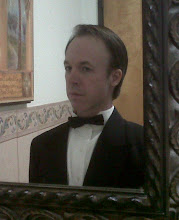Original Works, New Format for New Works Festival
The College of the Canyons New Works Festival is an event that invites local playwrights to submit original works and have them performed before live audiences in the College of the Canyons Performing Arts Center. Now in its fifth year, this year's festival will be held from March 22 to 25 in the center's Black Box theater.
More than 18 playwrights submitted works this year and eight have been chosen for presentation. During the college's winter session, the scripts were prepared for presentation and during the spring semester, they are rehearsed and performed.
"This is a unique process," said David Stears, director of the New Works Festival. "With most festivals, the play is submitted and as a playwright, you don't see that work again until the performance. This is an opportunity to work through the entire process, so the playwright can refine the product right up until the end."
Over the years, the festival's format has evolved and this year there are some substantial changes. This year, for the first time, the festival opened the submission process to anyone in the community. "We are a community college," said Stears, "so why not invite everyone from the community to participate?"
Also new this year is a Playwright's Symposium, a panel discussion beginning at 7 p.m. Thursday, March 22, with some of Los Angeles' most exciting playwrights. The discussion will focus on the creation and production of scripts and will be followed by an open question, answer and discussion forum. Panel participants will be:
- Katherine Griffith, Playwright
- Randee Trabitz, Director
- Mickey Birnbaum, Playwright
- Jennie Webb, Playwright
Admission to the panel discussion is free, and there will be no late seating.
Since more pieces than usual were selected for presentation this year, it became more difficult to present all of the pieces in a single evening. "This challenge became an opportunity to widen the festival," said Stears. "By adding performances and alternating the presentations, we've created more of a festival feel to the event."
Scheduling isn't the only difference in this year's programs. "Two of the selections are what we consider challenging work," said Stears. "So we've included those two pieces together in an evening." Both pieces contain language and subject matter that may not be suitable for all audiences. Performances have been grouped into two distinct programs .
Program A
Challenges Faced -- Six pieces of questions, challenges, and hope.
Suitable for most audiences.
- Friday at 7 p.m.
- Saturday at 4 p.m.
Program B
The Machiavelli Way -- Two pieces with a common backdrop: revenge and reconciliation. This program may be considered challenging in language and content. Some material may be considered offensive or inappropriate for all audiences.
- Saturday at 8 p.m.
- Sunday at 2 p.m.
The final change to this year's festival format is the addition of a Talk Back session after each performance. This is an opportunity for the audience to give its feedback to playwrights, actors, and directors on the work they've just seen. "It's an opportunity," said Stears, "for audiences to express themselves and let their voices be heard."
Admission is free for all New Works Festival performances. No advance reservations are accepted. Admittance is on a first-come, first-served basis. Doors open 30 minutes prior to curtain. For more information about the performances, contact David Stears at (661) 259-7800, Ext. 26064.


